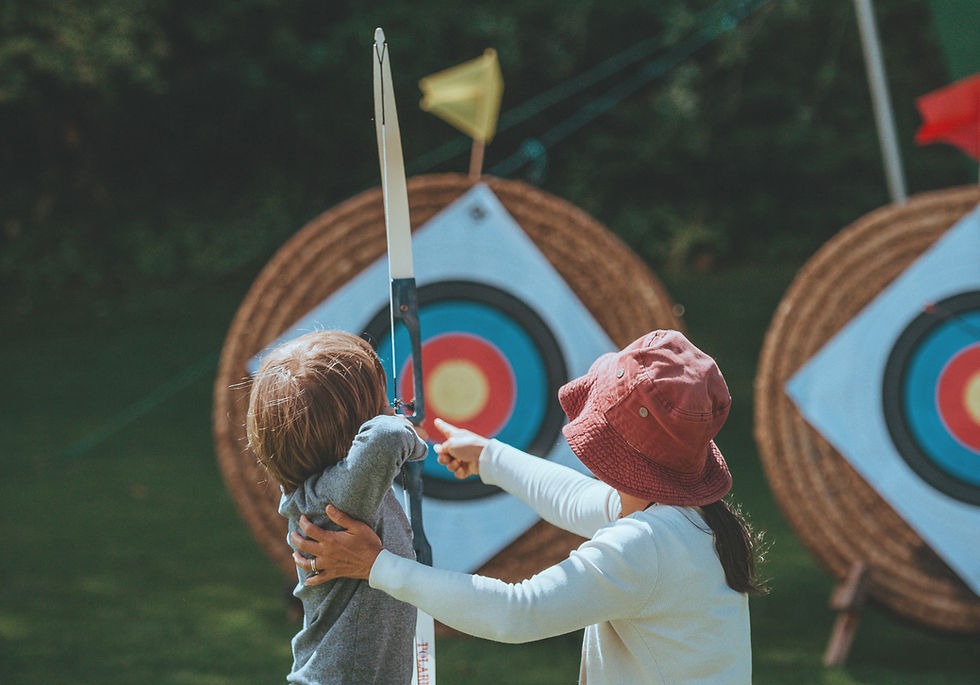Do you have good boundaries?
- Feb 19, 2019
- 3 min read
Updated: Oct 10, 2019
How do you talk to your kids?

There is nothing more stressful than trying to control something you have no control over. How many times do we relearn the lesson that we really can’t control what others think, feel, and do? But we just keep trying. We want our husbands to show us that he appreciates dinner by helping to clean up. We want our kids to show us we are good parents by behaving respectfully to others. But the fact remains. We can’t control them. Just ourselves.
But this is great news. This also means that we don’t need someone to help with the dishes in order to feel appreciated. It means that we don’t need our kids to act a certain way to prove that we are good parents. But we do need protection from others’ poor thoughts, feelings, and actions. And that’s where boundaries come in, because that is our job.
Boundaries define what we will tolerate in order to protect ourselves. They say what we will do if we come across something we believe is unhealthy for us to tolerate. If I have a coworker that yells at me, I can state, “I’m willing to finish this conversation if you can stay calm? If I don’t want to teach my children to expect others to work harder than they do for something they want, I can say, “Screen time is available when your chores are done.” This is totally different than, “If you don’t take that garbage out, I’m going to be angry and it shows how ungrateful you are.” When we throw in that emotional component about how we are going to feel if they do something, or don’t do something, we’ve moved into trying to change how we feel inside by changing someone else. We sometimes call this emotional manipulation.
How do you know where you stand with boundaries? Listen to how you speak to your children.
Do you tell them: “You embarrassed me when you acted like that in the store.”
Alright. If that is you, let’s take a step back. We’re watching your stress, right? How quickly does that put you in a victim role, your calm demeanor and sanity held hostage by a child? It’s taken your control away. And when we tell children they are responsible for how we feel, we just gave them power and responsibility over another human.
An alternative? Recognize your embarrassment to yourself and own it. By all means, follow through with an excellent boundaries statement about what you will do if rude behavior continues, but do it out of love for yourself, love for your child, not fear about what others will think of you.
Other varieties of this are, “Look how you made them feel”, “You hurt his feelings”, “I’m so mad at you”, “Stop doing that, it is annoying me”…is this sounding familiar?
If it is, awesome! Now you can do something about it! You don’t need the stress in your life of believing that you need others to think, act, feel, be a certain way in order to feel good. That is all yours. And if you know that it’s yours, I know you’re the kind that will be all over it. Because you’re tough like that.
Your action step this week: Listen to how you speak about your feelings to yourself and others. Blaming? Perfect. Now you know. Own it.
#autoimmune #chronicillness #autoimmunedisease #invisibleillness #spoonie #diabetes #t #chronicpain #warrior #guthealth #fibromyalgia #hashimotos #diabetesawareness #lupus #type #chronicallyill #health #celiac #glutenfree #fibrowarrior #healing #lupuswarrior #raynauds #nocolonstillrollin #chronicbadass #osteoporosis #wellness #boneprone #strength #bhfyp #boundaries #emotionalhealth #gratitude



Comments